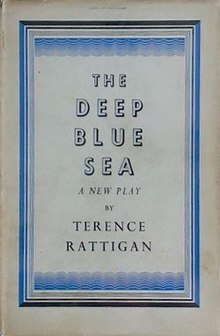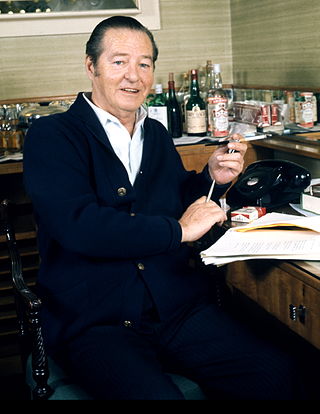
Sir Terence Mervyn Rattigan was a British dramatist and screenwriter. He was one of England's most popular mid-20th-century dramatists. His plays are typically set in an upper-middle-class background. He wrote The Winslow Boy (1946), The Browning Version (1948), The Deep Blue Sea (1952) and Separate Tables (1954), among many others.
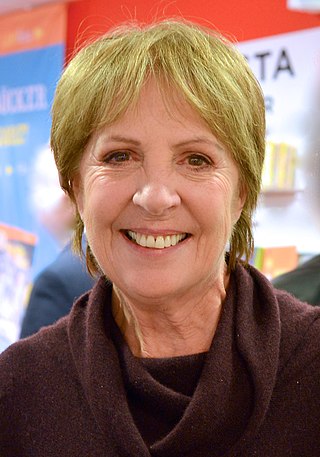
Dame Penelope Alice Wilton is an English actress.

The Theatre Royal Haymarket is a West End theatre on Haymarket in the City of Westminster which dates back to 1720, making it the third-oldest London playhouse still in use. Samuel Foote acquired the lease in 1747, and in 1766 he gained a royal patent to play legitimate drama in the summer months. The original building was a little further north in the same street. It has been at its current location since 1821, when it was redesigned by John Nash. It is a Grade I listed building, with a seating capacity of 888. The freehold of the theatre is owned by the Crown Estate.
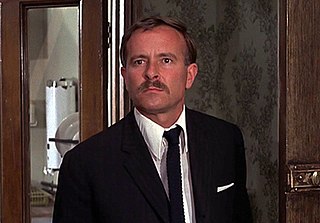
Alexander Duncan McCowen, was an English actor. He was known for his work in numerous film and stage productions.
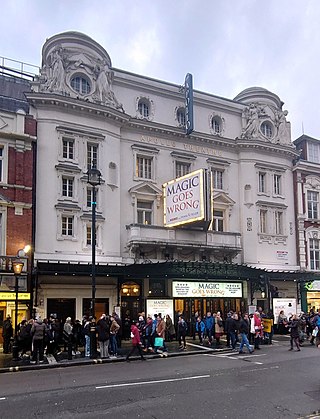
The Apollo Theatre is a Grade II listed West End theatre in Shaftesbury Avenue in the City of Westminster, in central London. Designed by the architect Lewin Sharp for owner Henry Lowenfeld, it became the fourth legitimate theatre to be constructed on the street when it opened its doors on 21 February 1901, with the American musical comedy The Belle of Bohemia.
Amanda Root is an English actress. She is perhaps best known for her starring role as Anne Elliot in the 1995 BBC adaptation of Persuasion. A familiar face on both stage and screen, she worked regularly with the Royal Shakespeare Company during her early career, performing as Juliet in Romeo and Juliet, and Lady Macbeth in Macbeth, among other roles. In 2009, she was nominated for a Tony Award for Best Featured Actress in a Play for her performance as Sarah in Alan Ayckbourn's The Norman Conquests.

Bernard Joseph Archard was an English actor who made many film and television appearances.
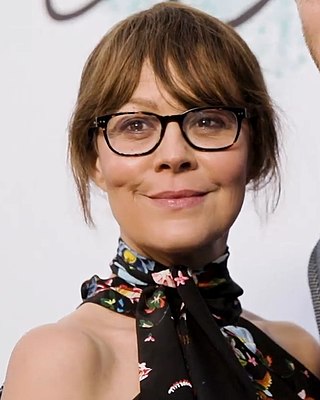
Helen Elizabeth McCrory was an English actress. After studying at the Drama Centre London, she made her professional stage debut in The Importance of Being Earnest in 1990. Other theatre roles include playing Lady Macbeth in Macbeth at Shakespeare's Globe, Olivia in Twelfth Night, Rosalind in As You Like It in the West End, and Medea in the eponymous play at the Royal National Theatre.
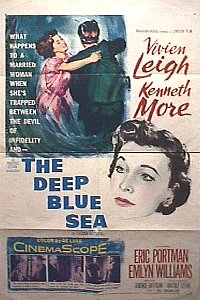
The Deep Blue Sea is a 1955 British drama film directed by Anatole Litvak, starring Vivien Leigh and Kenneth More, and produced by London Films and released by Twentieth Century Fox. The picture was based on the 1952 play of the same name by Terence Rattigan.

Thea Sharrock is an English theatre and film director. In 2001, at age 24, she became the artistic director of London's Southwark Playhouse and the youngest artistic director in British theatre.
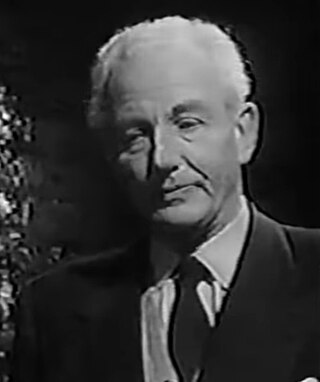
Gerard Heinz was a German actor.
David William Logan Westhead is an English actor.
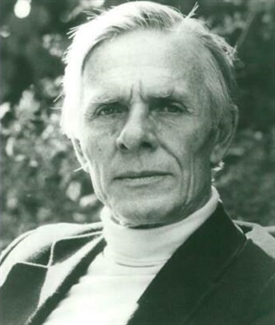
Basil Henson was an English actor. He appeared on film, television, and the stage, where he was particularly known for his work at the National Theatre.

Flare Path is a play by Terence Rattigan, written in 1941 and first staged in 1942. Set in a hotel near an RAF Bomber Command airbase during the Second World War, the story involves a love triangle between a pilot, his actress wife and a famous film star. The play is based in part on Rattigan's own wartime experiences, and was significantly reworked and adapted for film as The Way to the Stars.

After the Dance is a play by Terence Rattigan which premièred at the St James's Theatre, London, on 21 June 1939. It was not one of Rattigan's more successful plays, closing after only sixty performances, a failure that led to its exclusion from his first volume of Collected Plays. Critics have tended to attribute this relative contemporary failure to the play's darkness which may have reminded audiences of the approaching European war.
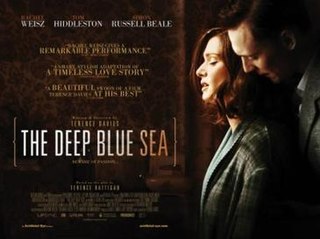
The Deep Blue Sea is a 2011 British romantic drama film written and directed by Terence Davies and starring Rachel Weisz, Tom Hiddleston, and Simon Russell Beale. It is an adaptation of the 1952 Terence Rattigan play The Deep Blue Sea about the wife of a judge who engages in an affair with a former RAF pilot. This film version was funded by the UK Film Council and Film4, produced by Sean O'Connor and Kate Ogborn.

Cause Célèbre or A Woman of Principle is a 1975 radio play, and the final play by the English author Terence Rattigan. It was inspired by the trial of Alma Rattenbury and her teenage lover in 1935 for the murder of her third husband Francis Rattenbury and first broadcast on BBC Radio 4 on 27 October 1975. It was Rattigan's first radio play, and Alma was played by Diana Dors. Rattigan was then commissioned to rewrite it as a stage play, ready to be produced in Autumn 1976, but his terminal cancer and casting problems meant he was able to start work only in January 1977, alongside director Robin Midgley. This stage version premiered at the Haymarket Theatre, Leicester in 1977 before its West End premiere on 4 July 1977 at Her Majesty's Theatre in London, with Glynis Johns as Alma Rattenbury and Helen Lindsay as Edith Davenport. It received largely positive reviews. Rattigan discharged himself from hospital to attend the opening night.
Harry Frederick Gerard Hadden-Paton is a British actor. He is perhaps best known for his television roles as Herbert "Bertie" Pelham, 7th Marquess of Hexham, in the television series Downton Abbey and Martin Charteris in The Crown.
"The Deep Blue Sea" is a 1954 British TV play based on the play by Terence Rattigan starring Kenneth More, reprising his role on stage.

Variation on a Theme is a 1958 play by the British writer Terence Rattigan. It is a reworking of Alexandre Dumas, fils's nineteenth century novel and subsequent play La Dame aux Camélias.
